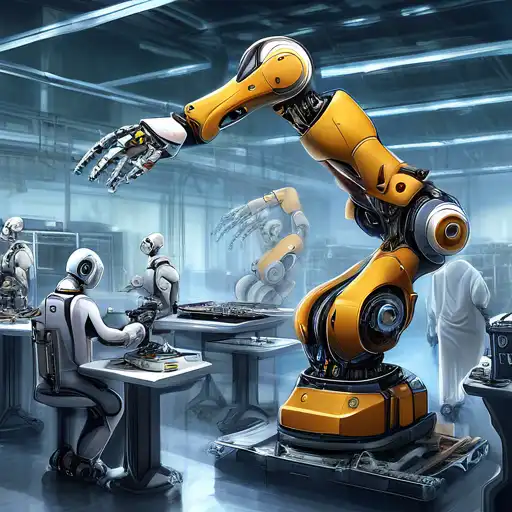The Revolutionary Impact of Robotics on Modern Manufacturing
In the ever-evolving landscape of manufacturing, robotics has emerged as a game-changer, revolutionizing how products are designed, produced, and delivered. This transformation is not just about automating repetitive tasks but about redefining efficiency, precision, and scalability in manufacturing processes.
Enhancing Efficiency and Productivity
Robotics technology has significantly boosted manufacturing efficiency by automating tasks that were once manual, time-consuming, and prone to human error. Robots work tirelessly around the clock, reducing production times and increasing output. This leap in productivity enables manufacturers to meet growing consumer demands without compromising on quality.
Improving Precision and Quality
One of the most notable benefits of robotics in manufacturing is the unparalleled precision it offers. Robots are capable of performing intricate tasks with exacting accuracy, ensuring that every product meets stringent quality standards. This precision reduces waste and rework, leading to significant cost savings and higher customer satisfaction.
Scalability and Flexibility
Modern robotic systems are designed to be highly adaptable, allowing manufacturers to easily scale operations up or down based on demand. This flexibility is crucial in today's fast-paced market, where the ability to quickly adjust production lines can be a competitive advantage.
Reducing Operational Costs
While the initial investment in robotics can be substantial, the long-term savings are undeniable. Robots reduce labor costs, minimize errors, and lower energy consumption, contributing to a more sustainable and cost-effective manufacturing process.
The Future of Manufacturing with Robotics
As robotics technology continues to advance, its role in manufacturing is set to grow even further. Innovations such as collaborative robots (cobots), artificial intelligence (AI), and the Internet of Things (IoT) are paving the way for smarter, more connected factories. These developments promise to enhance not only the efficiency and quality of manufacturing but also the safety and working conditions for human employees.
In conclusion, robotics is transforming the manufacturing industry in profound ways, offering benefits that extend far beyond automation. By embracing this technology, manufacturers can achieve unprecedented levels of efficiency, quality, and flexibility, securing their place in the future of industrial production.
For more insights into how technology is shaping industries, explore our technology trends section.
